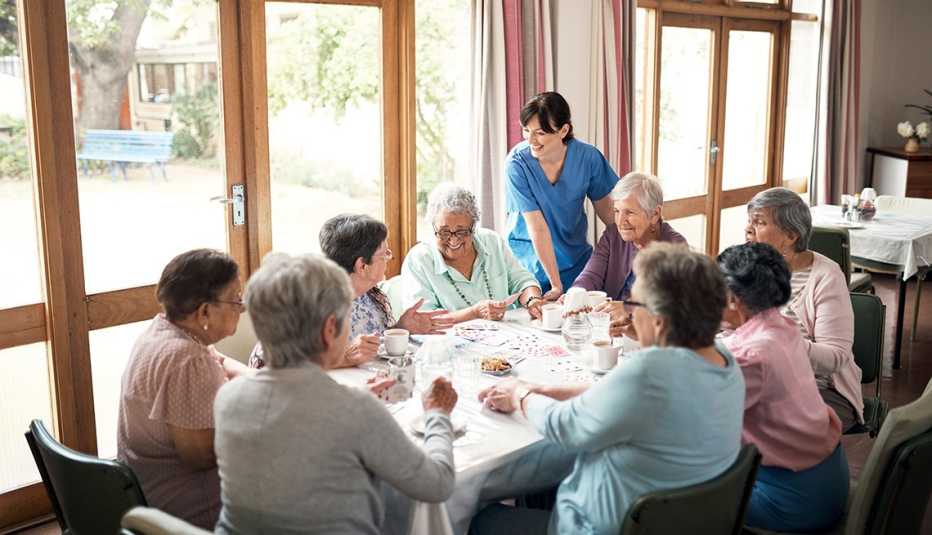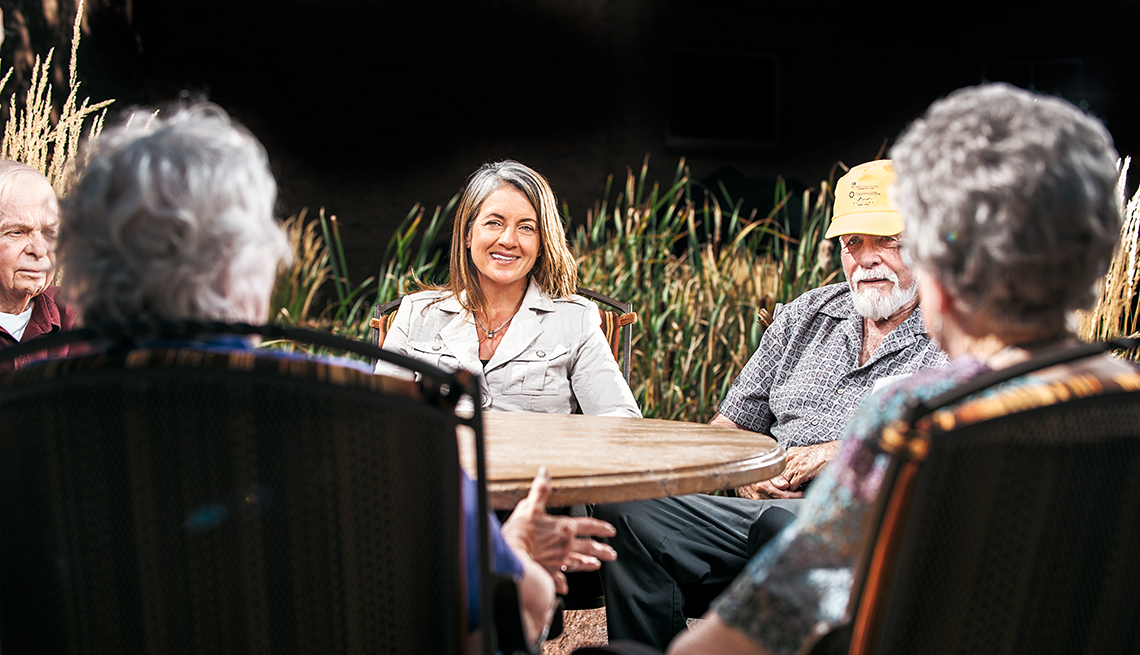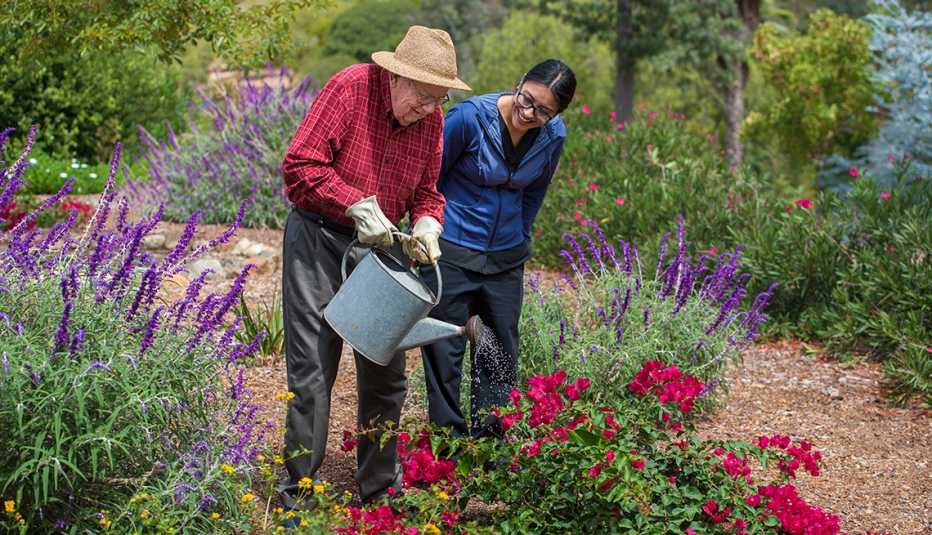AARP Hearing Center
With 10,000 boomers turning 65 each day, the need for senior living is growing at a drastic rate, and the aging-services field has been hard at work preparing for this new customer. Current practices aim to bring the kind of comfort and amenities enjoyed at hotels and resorts to the settings we create for older adults to live in. But what if the focus of these efforts is misdirected? What if we are viewing senior living options through the wrong lens?
Jill Vitale-Aussem, author of AARP’s Disrupting the Status Quo of Senior Living: A Mindshift, exposes the errors of our thinking and demonstrates how a shift in perspective and practices can help us create vibrant cultures of possibility and growth. A veteran of the senior living field, Vitale-Aussem ran nonprofit and for-profit senior living communities and is now president and CEO of the Eden Alternative, a global, innovative nonprofit dedicated to establishing a high quality of life for older people and their care partners.
When you started working as an administrator in a nursing home, you admitted yourself as a resident. Why?
I kept thinking, How can you run a community where you don't know what it's like being on the receiving end? I thought I would learn how to make things better. I didn't expect to have this deep, gut-wrenching experience.
Which was?
You're not in control of your life. There was constant noise and no privacy. With an incontinence diagnosis, which I was given, someone checked on me every two hours, even at night. I ended up being sleep-deprived.
And then they got you up early?
Yes. They helped me get dressed, rolled me out into the hallway, and I waited. Staff walked by, busy. It's almost like I didn't exist. After that I went home and cried. If I felt like that after 24 hours, how do you survive it for years?


Based on your experience, what is the biggest mistake we make in housing for people who can't live alone?
We do really well caring for medical needs. But we focus on residents’ decline and do everything for them. We fall into the trap of believing that older people don't have anything to give back and are just consumers of services. We take away what we know people need, what science has shown we need: a reason to get up in the morning.
So how do we fix that?
Instead of doing everything for residents, we should ask: “What gifts do you have? What do you want to learn? What do you want to give back?”





































































